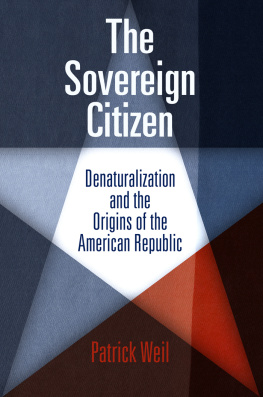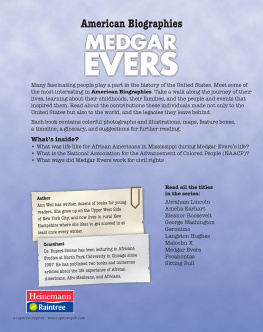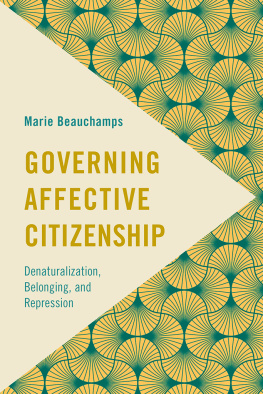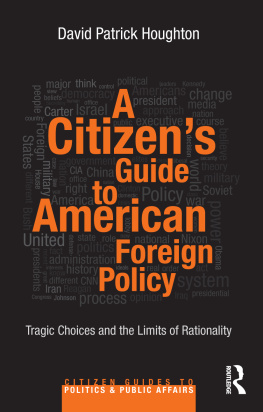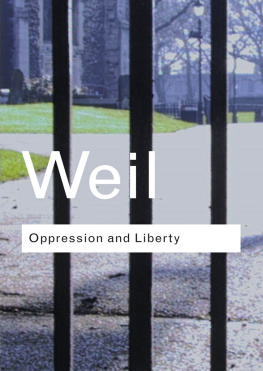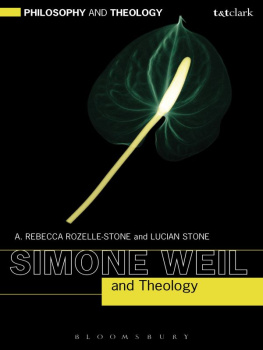Copyright 2013 University of Pennsylvania Press
All rights reserved. Except for brief quotations used for
purposes of review or scholarly citation, none of this book
may be reproduced in any form by any means without
written permission from the publisher.
Published by
University of Pennsylvania Press
Philadelphia, Pennsylvania 19104-4112
www.upenn.edu/pennpress
Printed in the United States of America on acid-free paper
10 9 8 7 6 5 4 3 2 1
Library of Congress Cataloging-in-Publication Data
Weil, Patrick.
The sovereign citizen : denaturalization and the origins of
the American Republic / Patrick Weil.1st ed.
p. cm.(Democracy, citizenship, and constitutionalism)
Includes bibliographical references and index.
ISBN 978-0-8122-2212-8 (pbk. : alk. paper)
1. ExpatriationUnited StatesHistory20th century.
2. Citizenship, Loss ofUnited StatesHistory20th century.
3. CitizenshipUnited StatesHistory20th century. I. Title.
KF4715.W45 2013
342.7308'3dc23 2012022653
Introduction
Present-day Americans feel secure in their citizenship. They are free to speak up for any cause and to oppose their government, to marry a person of any nationality, and to live wherever they decide, in the United States or abroad. Many Americans consider their citizenship the most cherished status in the world. This is why most foreign-born U.S. residents look forward to the day they can apply for citizenship, once the required five-year waiting period has passed. For many, the day they pledge allegiance to the United States will be one of the most memorable of their lives.
Yet there was a time, not long ago, when the American government expatriatedor forcibly stripped the citizenship ofcertain American citizens. Beginning in 1907, American women marrying foreign husbands, as well as previously naturalized Americans who later moved abroad, could lose their citizenship. Although the former provision would later be repealed, the Nationality Act passed in 1940 expanded the automatic loss of citizenship to include several new categories of American-born citizens, including those who engaged in foreign military service, voted in foreign elections, or were convicted of treason or of desertion from the armed forces of the United States.
While American-born citizens could lose their citizenship in limited circumstances, naturalized foreign-born Americans were at special risk because they could be deprived of their citizenship, or denaturalized, for a wide variety of reasons. It might come as no surprise that the citizenship of the naturalized could be revoked if their naturalization application was tainted by fraud or other illegal acts. But foreign-born Americans could also be denaturalized: if they spoke out or took action against the U.S. government during wartime or were otherwise involved in radical organizations; if they belonged to ethnic or political groups that were perceived as un-American; or if they resided abroad, in any country around the world, regardless of how many years they had been American citizens. Although denaturalization had similar consequences for the individual as another phenomenon called denationalization,
During the course of the twentieth century, more than twenty-two thousand Americans were denaturalized. Even decades after becoming Americans, the foreign-born risked losing their citizenship in denaturalization proceedings initiated by the executive branch and tried in the courts. This book tells the unique story of these Americans for the very first time.
Denaturalization and denationalization are most often associated with twentieth-century authoritarian regimes. The Soviet Union revoked the citizenship of 1.5 million individuals. The Nazi regime denaturalized forty thousand people and revoked the citizenship of another forty thousand native-born citizens. In France, between 1940 and 1944, the Vichy regime denaturalized fifteen thousand people and stripped the citizenship of five hundred native-born French nationals.
But denaturalization existed in democracies as well. The United States first established the practice through the Naturalization Act of 1906. Only three years later, in 1909, Emma Goldman became the first American denaturalized for political reasons. Following the United States, the United Kingdom introduced denaturalization in 1914, and further reinforced its procedures in 1918. France temporarily installed a denaturalization policy in 1915, for the duration of World War I, and made the practice permanent through legislation passed in 1927. Many other countries followed suit.
In 1933, twenty-four years after having been deprived of her citizenship, Goldman would write of the trend:
To have a country implies, first of all, the possession of a certain guarantee of security, the assurance of having some spot you can call your own and that no one can alienate from you. That is the essential significance of the idea of country, of citizenship. Divested of that, it becomes sheer mockery.
Up to the World War citizenship actually did stand for such a guarantee.... But the War has entirely changed the situation. Together with countless lives, it also destroyed the fundamental right to be, to exist in a given place with any degree of security.... Citizenship has become bankrupt: it has lost its essential meaning, its one-time guarantee. Deprivation of citizenship, exile and deportation are practiced by every government; they have been established and accepted methods.... Yet, for all their legality, denaturalization and expatriation are of the most primitive and cruel inhumanity.
This study of denaturalization examines, but also searches beyond, the personal ordeals and destinies of the denaturalized by casting light on neglected dimensions of Americas understandings of citizenship. The institution of denaturalization, from its first appearance in America in 1906, made a quiet yet major contribution to the transformation of contemporary American citizenship in at least two ways. The first of these was in the federalization of the naturalization process. Today a foreign resident who wants to become an American citizen looks for the nearest federal officeand not to the local and state courts. This was not always the case. The second of denaturalizations contributions is the role it played in a series of twentieth-century Supreme Court decisions that would redefine the countrys understanding of sovereignty and citizenship.
In 1790, Congress established, for the first time, a uniform rule of naturalization. it remained the case from the Founding until 1930 that the majority of new Americans were naturalized in state courts. The state judiciary, however, did not always respect citizenship requirements set by federal law.
In the first part of the nineteenth century, the federal government fought for its sovereignty on several fronts, against states of the Union that challenged the supremacy of federal citizenshipculminating in the bloody and hard-fought Civil Warand against foreign countries that contested the power of the United States to naturalize their former citizens. But by 1868 these early battles were over. One day before Congress ratified the Fourteenth Amendment, which unified American citizenship and proclaimed the precedence of federal citizenship over state citizenship, it also passed the Expatriation Act of 1868. This Act proclaimed the right of American citizens to expatriate, or acquire a foreign nationality, and the equal right of all naturalized citizens to travel abroad under the protection of the United States. The latter was




